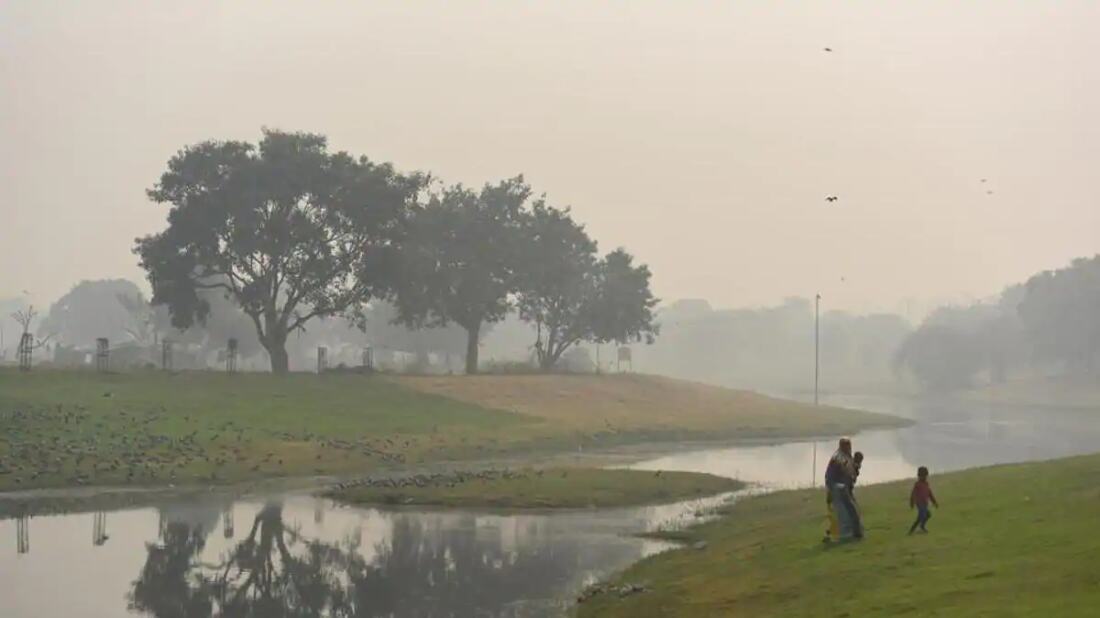For the people

If there was any doubt as to the urgency and scale of the current smog season in India, air quality in and around the capital this week broke all records in skyrocketing into dangerous levels. The air quality index recorded a season-high of 477 in certain places. It may be noted that an API of between 401-500 is already considered hazardous. With calm winds, continued stubble burning and an approaching holiday season, the IMD (Indian Meteorological Department) stated that relief for the same is unlikely to come any time soon. Naturally, this issue has been taken up by both the Central Government and the Delhi Government as a matter of particular concern. Thus, among other things the Government has instituted the Commission for Air Quality Management in the National Capital Region and Adjoining Areas which can fight air pollution on a war footing. Additionally, The National Green Tribunal has banned the use and sale of firecrackers in NCR from November 9 to November 30. Now a total of eight other states have followed the direction on this ban,
On the other hand, major states like Maharashtra and Punjab have pulled back from imposing any bans, choosing instead to go with the more traditional method of simply appealing to the good sense of the people themselves. Addressing the lack of ban, Maharashtra CM Uddhav Thackeray admitted that there is evidence pointing towards the relationship between air pollution and increased severity of COVID-19 infections. But at the same time, he expressed reluctance over an actual ban and much preferred to place his trust in people to act with moderation and safety. He has not yet issued safety guidelines for the possible opening of places of worship but is expected to do the same soon enough. On the other hand, Punjab maintains that it has its pollution situation under relative control and thus does not need a hard and fast ban. Even Haryana that had previously committed to a cracker ban on Diwali has now backtracked and promised a two-hour lifting of the ban on Diwali day.
This reluctance is not simply a matter of having faith in your citizenry to do what is right. It is also not a reflection of the whole debate over whether air pollution actually aggravates COVID-19 or not. While there is no irrefutable science on this matter just yet, science does consider the correlation extremely likely. The problem lies in the fact that banning crackers has never been straightforward in India. Over the years, as the option to ban crackers is mulled over during the smog season, a familiar debate arises. It is a debate over whether firecrackers are indeed an Indian tradition or not, tied to our social and religious identity. On that matter, as yet, there is no clear consensus. While there is evidence of the use of crackers and gunpowder in India across centuries, it is hard to reasonably conclude that bursting firecrackers is an organic part of Indian culture. All the same, the SC has on multiple times opined that it is dangerous to intrude on the common man's expression of festive fervour, recommending instead to simply recommend moderation and safety. Naturally, the firecracker market in India is an expansive one and arguments can be made over how such a ban can negatively impact a rather large industry at a time when the economy is looking towards a road to slow recovery. But this isn't the argument that is being made every year. As the recent furore over a new Tanishq Diwali ad has shown, it is not an argument based on logic or numbers. To recount, Tanishq recently released an ad that made a statement against the bursting of crackers. A simple message that has been repeated many times over in many different forums. And yet, complaints were registered with the rationale that a company should not give advice over how festivals are celebrated and should instead simply sell products. This statement not only contradicts the long-standing societal desire for companies to take a stand on important issues and not simply sell products but also discounts the message as being a simple attack on Indian culture. Let us not forget that we are in the middle of a very real crisis that we are yet to overcome. While India has apparently stabilised its case count, the smog season brings with it risk of a second, far greater wave. Thus, an appeal against the use of crackers is not an attack on any one culture or faith but a prudent message to act in the interest of human life above all else.



